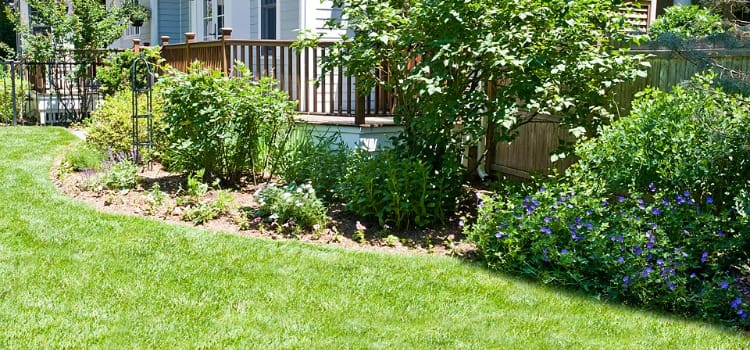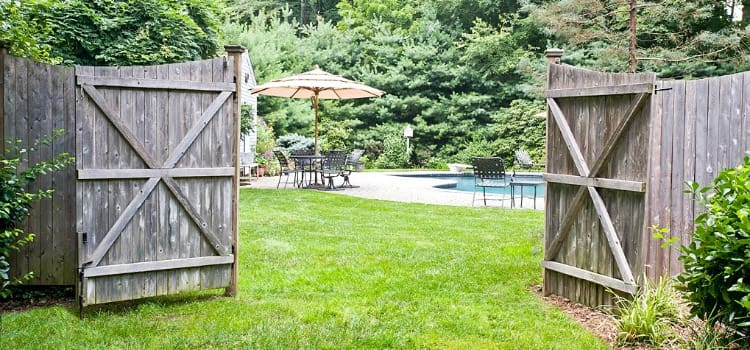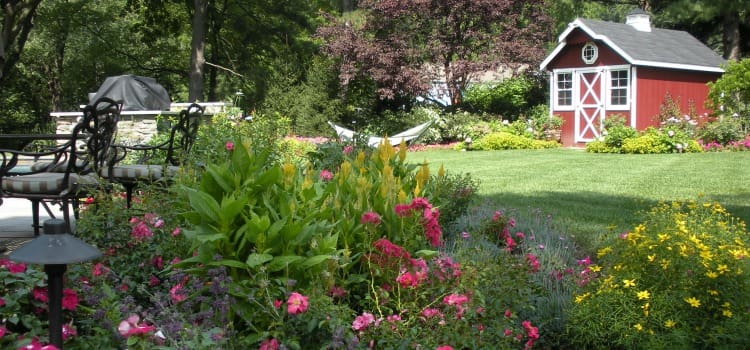Northern New Jersey winters can take a toll on your lawn and landscape. When spring rolls around, you may discover that your beautiful lawn is full of unsightly brown spots, bare patches and dead grass.
To make sure that your lawn stays healthy, your NJ lawn care for winter should include preparing your lawn for the spring season.
Winter Lawn Care Tips
Although your grass may appear a little browner in the winter, it still needs regular care and maintenance to survive cold winter temperatures and produce new, green growth in the spring.
The winter season requires less lawn care and maintenance than other seasons, but it’s important not to ignore your lawn. During the winter, you should focus on regular lawn care and maintenance, protecting grass, plants and trees and cleaning up the landscape.
Hiring a professional landscape company for year-round lawn care in NJ can ensure that your lawn stays healthy through all seasons.
Regular Lawn Care and Maintenance
Since most plant growth slows down or goes dormant during the winter, your grass, plants, shrubs and trees won’t grow as fast, but they still need regular care and maintenance.
If your landscape is neglected during the winter, you may have weeds, lawn diseases, overgrown shrubs and trees and outdoor pest problems by spring. Tall grass leaves your lawn susceptible to a variety of harmful insects and outdoor pests.
Overgrowth makes a warm, cozy winter home for field mice, rats, gophers, moles, possums, raccoons, rats and snakes that can destroy your lawn and create possible dangers for small children and pets.

Protect Your Grass, Plants and Trees
Northern NJ winters bring freezing temperatures with snow, sleet and ice and heavy rainfall that often includes hail and high winds. It’s important to protect your grass, plants and trees with proper lawn care in NJ, so they recover from the cold and produce healthy, new growth when spring returns.
Minimize Foot Traffic
Although grass is naturally resilient, freezing winter ground temperatures put extra stress on grass roots. Cool-season grasses, common in Bergen County lawns, usually turn brown and go dormant during the winter, but they will turn green again in the spring with proper care and maintenance.
During the winter, excessive foot traffic on your lawn can damage the grass and create a slower recovery period for a green lawn in the spring.
Plants and Shrubs
Freezing temperatures will quickly kill your landscape plants if they aren’t protected from the cold. Talk to a landscape company, like Borst Landscape & Design, about wrapping plants with a protective covering to keep them from freezing.
If you have deer, rabbits or voles in your landscape, a landscape professional can help you with organic repellents that will protect your plants from hungry critters without causing them harm.
Trees
It’s difficult to protect large, mature trees from winter cold, but you can prevent cracking on young tree trunks and thin-barked trees, like fruit trees and maples, that’s caused by freeze/thaw processes.
You can wrap tree trunks with paper tree wrap or use white cloth or white latex paint, about four inches wide, to reflect sunlight into the landscape. When using wraps, overlap layers as you go, then secure the ends by wrapping tape around them several times.
Outdoor Ponds
If you have an outdoor pond on your property, it will need winter protection. To protect fish and plants, it’s important to install water heaters in the pond before the water freezes.
If your pond is home to frogs, you can put clay soil in a plastic bowl or dish and put it on the bottom of the pond. Frogs will naturally burrow in the clay soil and hibernate until spring. Talk to a landscape professional, like Borst, about year-round care and maintenance for your outdoor pond.

Clean Up Your Landscape
During harsh Bergen County winters, your landscape can collect fallen tree limbs and branches, twigs and debris that gets blown onto your property during winter storms and high winds.
Any debris that’s left on your lawn too long can cause dead spots in your grass, especially during snowfall when your grass lacks sufficient oxygen. To prevent lawn diseases and damage to grass and plants, it’s important to keep your property well-maintained throughout the winter season.
As spring approaches and the last signs of frost are gone, focus on cleaning up your landscape:
- Remove yard debris like trash, fallen tree limbs and branches, pine cones, acorns and rocks.
- Remove dead plants and dead plant growth.
- Rake up twigs and dead leaves, especially wet leaves that attract harmful insects.
- Inspect your lawn for signs of lawn diseases.
- Inspect your lawn, plants, shrubs and trees for signs of insects and outdoor pests.
When your landscape is cleaned up and warm spring temperatures arrive, you will be ready to focus on spring lawn care in NJ that will produce a beautiful, green lawn and a healthy landscape filled with lush foliage and colorful plants and flowers.
Spring Lawn Care Tips
Spring brings warm sunshine and rainfall that gives your lawn and landscape a jump start for new growth. Since spring is a major growth season, it’s an important time for lawn care in NJ.
Your grass grows at a faster pace, flowers and plants produce colorful new blooms and trees and shrubs produce new green leaves. After a cold winter, you should focus on regular lawn care and maintenance, weeding, feeding and outdoor pest control.

Regular Lawn Care and Maintenance
In the spring, everything in your landscape is growing at a faster rate and this produces abundant new growth. Regular lawn care and maintenance is essential to promote healthy grass and plant roots and prevent weeds, overgrown shrubs and trees and outdoor pests.
When you hire a landscape professional for NJ lawn care, regular lawn care and maintenance services are usually provided on a weekly basis and include:
- Lawn mowing.
- Weeding.
- Border edging for sidewalks, walkways, driveways and patio areas.
- Cleaning of hard surfaces like walkways and driveways.
- Spring yard cleanup to remove dead winter growth and debris.
- Fall yard cleanup to remove dead summer growth and prepare for winter.
Weeding
Spring encourages abundant new growth, but it also encourages weed growth in your lawn. As soon as warm weather arrives, in early spring, it’s important to apply a pre-emergent herbicide to your lawn to prevent weed growth before it takes hold in your lawn.
Aggressive weeds like thatch, dandelions and crabgrass will quickly invade and spread throughout your lawn without proper weed control. In late spring, you can apply a post-emergent herbicide to control broadleaf and grassy weeds that usually show up in the summer.
Feeding
During the winter, your lawn and landscape plants and trees are deprived of essential nutrients such as nitrogen, phosphorus, potassium and iron normally found in fertilizers.
These nutrients are necessary for strong root systems and healthy, new growth. In early spring, it’s important to fertilize your lawn, plants and trees, so they can produce green, healthy growth. For best results, choose a light, slow-release or organic type fertilizer that won’t burn your lawn.
A lawn care professional can choose the best type of fertilizer for your grass and landscape plants and create a regular fertilization schedule for proper lawn care in NJ year-round.
Outdoor Pest Control
The first signs of spring weather bring a variety of insects and outdoor pests to your lawn and landscape. Not all of them are harmful, but many love to feed on fresh, new green growth of grass and plants.
Many outdoor insects and pests are responsible for lawn diseases that cause yellow or brown spots, bare patches and dead grass in your lawn. In early spring, it’s important to implement proper pest control before damages occur.
Talk to a Bergen County landscape professional, like Borst, about an Integrated Pest Management Program (IPM) that focuses on organic lawn care in NJ as an excellent solution for year-round pest control.


